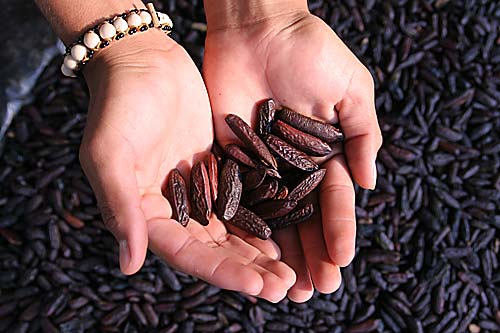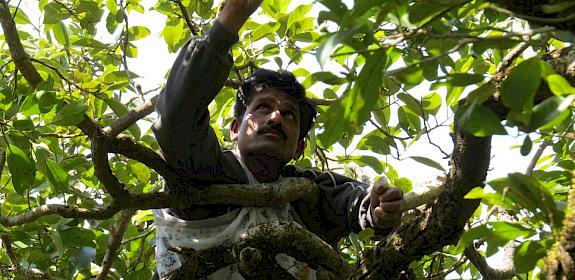Access and Benefit-Sharing: Implications for the use of biological resources
Cali, Colombia, 1st April 2010—Negotiations at a Convention on Biological Diversity (CBD) meeting last week focused on finalizing the text of an International Regime (IR) on Access and Benefit-Sharing (ABS).

ABS lies at the core of the Convention and relates to the rights of communities to benefit from their traditional knowledge and access to their genetic resources.
Amidst the official negotiations at the Ninth Ad Hoc Open-ended Working Group on Access and Benefit-sharing (WG ABS 9), talks took place at a side-event hosted by IUCN, the Peruvian Society for Environmental Law (SPDA), the Center for Economic and Social Aspects of Genomics (CESAGEN), WWF, TRAFFIC and the Andean Amazon Initiative against Biopiracy.
Participants were invited to discuss issues ranging from the concepts of sovereignty and country of origin, through to an analysis of how the ideas of open source and commons can assist in the implementation of ABS policies and legislation and what specific lessons can be learned from field projects that address ABS and protection of Traditional Knowledge.
One of the projects examined is a joint programme of AVIVE, a women’s community association based on the island of Silves in the Brazilian Amazon and IUCN. The project promotes a better comprehension of and guidance on implications of the use of biological resources and associated Traditional Knowledge, aiming to establish agreements on conservation and benefit sharing with different partners, including the private sector.
AVIVE produces essential oils, soaps, candles and other products that are sold through COPRONAT, a business co-operative. The AVIVE-COPRONAT partnership helps promote biodiversity conservation through the promotion of best practices and improving the livelihoods of those communities involved.
The AVIVE study was undertaken within a larger project funded by the German Federal Ministry for Economic Cooperation and Development (BMZ) and supported by TRAFFIC and WWF.
One of the key concerns of TRAFFIC and its partners is the clarification of the scope of ABS and potential inclusion of biological resources and the management of associated benefits into a final ABS International Regime. A key aim is to avoid having confusing national regulations and policies dealing with genetic and biological resources running in parallel.
It is hoped a final agreement on the ABS International Regime can be reached for sign-off at the Tenth Conference of the Parties to CBD taking place in Nagoya, Japan, this October.
More information (in Spanish) at: http://iucn.org/es/sobre/union/secretaria/oficinas/sudamerica/?4975/avive



